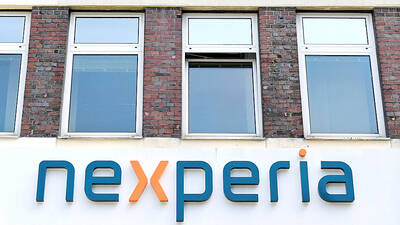The Financial Supervisory Commission (FSC) yesterday said that it would clearly define so-called “securities tokens” and draft regulations for security token offerings by June to protect investors.
The FSC, which said at the Legislative Yuan’s Finance Committee in October last year that it would draft national standards for initial coin offerings, would not regulate digital tokens that are not securities tokens, FSC Chairman Wellington Koo (顧立雄) told a news conference yesterday.
“It is not easy to draw up the rules, as there is little to draw upon from other countries, but we will try to complete the work by June,” Koo said, adding that many nations are still in the process of making their rules.
Although the US Securities and Exchange Commission has proposed a definition for securities tokens, it seems to be too loose to be applied in Taiwan, Koo said.
There are many types of digital coins, but only those that have securities-like attributes — such as those with the potential to make capital gains through trading, or which serve as units of ownership interests in a corporation or asset — can be defined as securities tokens, Koo said.
As these tokens function similarly to a security, the commission would not draft another set of rules on token trades, but their trade would be regulated under the Securities Exchange Act (證券交易法), Koo said.
The commission would continue to communicate with the exchanges and firms that sell or issue the coins, Koo said.
The commission has no intention of stifling the potential innovations and productivity gains associated with cryptocurrencies if they are not used as securities, the chairman said.
Coins that are not defined as securities tokes and their initial coin offerings would not be regulated, he said.

Jensen Huang (黃仁勳), founder and CEO of US-based artificial intelligence chip designer Nvidia Corp and Taiwan Semiconductor Manufacturing Co (TSMC, 台積電) on Friday celebrated the first Nvidia Blackwell wafer produced on US soil. Huang visited TSMC’s advanced wafer fab in the US state of Arizona and joined the Taiwanese chipmaker’s executives to witness the efforts to “build the infrastructure that powers the world’s AI factories, right here in America,” Nvidia said in a statement. At the event, Huang joined Y.L. Wang (王英郎), vice president of operations at TSMC, in signing their names on the Blackwell wafer to

AI BOOST: Although Taiwan’s reliance on Chinese rare earth elements is limited, it could face indirect impacts from supply issues and price volatility, an economist said DBS Bank Ltd (星展銀行) has sharply raised its forecast for Taiwan’s economic growth this year to 5.6 percent, citing stronger-than-expected exports and investment linked to artificial intelligence (AI), as it said that the current momentum could peak soon. The acceleration of the global AI race has fueled a surge in Taiwan’s AI-related capital spending and exports of information and communications technology (ICT) products, which have been key drivers of growth this year. “We have revised our GDP forecast for Taiwan upward to 5.6 percent from 4 percent, an upgrade that mainly reflects stronger-than-expected AI-related exports and investment in the third

RARE EARTHS: The call between the US Treasury Secretary and his Chinese counterpart came as Washington sought to rally G7 partners in response to China’s export controls China and the US on Saturday agreed to conduct another round of trade negotiations in the coming week, as the world’s two biggest economies seek to avoid another damaging tit-for-tat tariff battle. Beijing last week announced sweeping controls on the critical rare earths industry, prompting US President Donald Trump to threaten 100 percent tariffs on imports from China in retaliation. Trump had also threatened to cancel his expected meeting with Chinese President Xi Jinping (習近平) in South Korea later this month on the sidelines of the APEC summit. In the latest indication of efforts to resolve their dispute, Chinese state media reported that

CHINESE EXPORT CURBS: A dispute between China and the Netherlands could halt chip supply, affecting vehicle production, US and European auto associations said Groups representing major automakers late on Thursday warned that a chip disruption stemming from a dispute between China and the Dutch government could quickly affect US auto production. Automakers and their suppliers received notice from chipmaker Nexperia (安世半導體) last week that it could no longer guarantee delivery of its chips, the European Automobile Manufacturers Association said, adding that manufacturing could be significantly disrupted. In the US, the Alliance for Automotive Innovation, which represents General Motors, Toyota, Ford, Volkswagen, Hyundai and nearly all other major automakers, urged a quick resolution. “If the shipment of automotive chips doesn’t resume — quickly — it’s going to